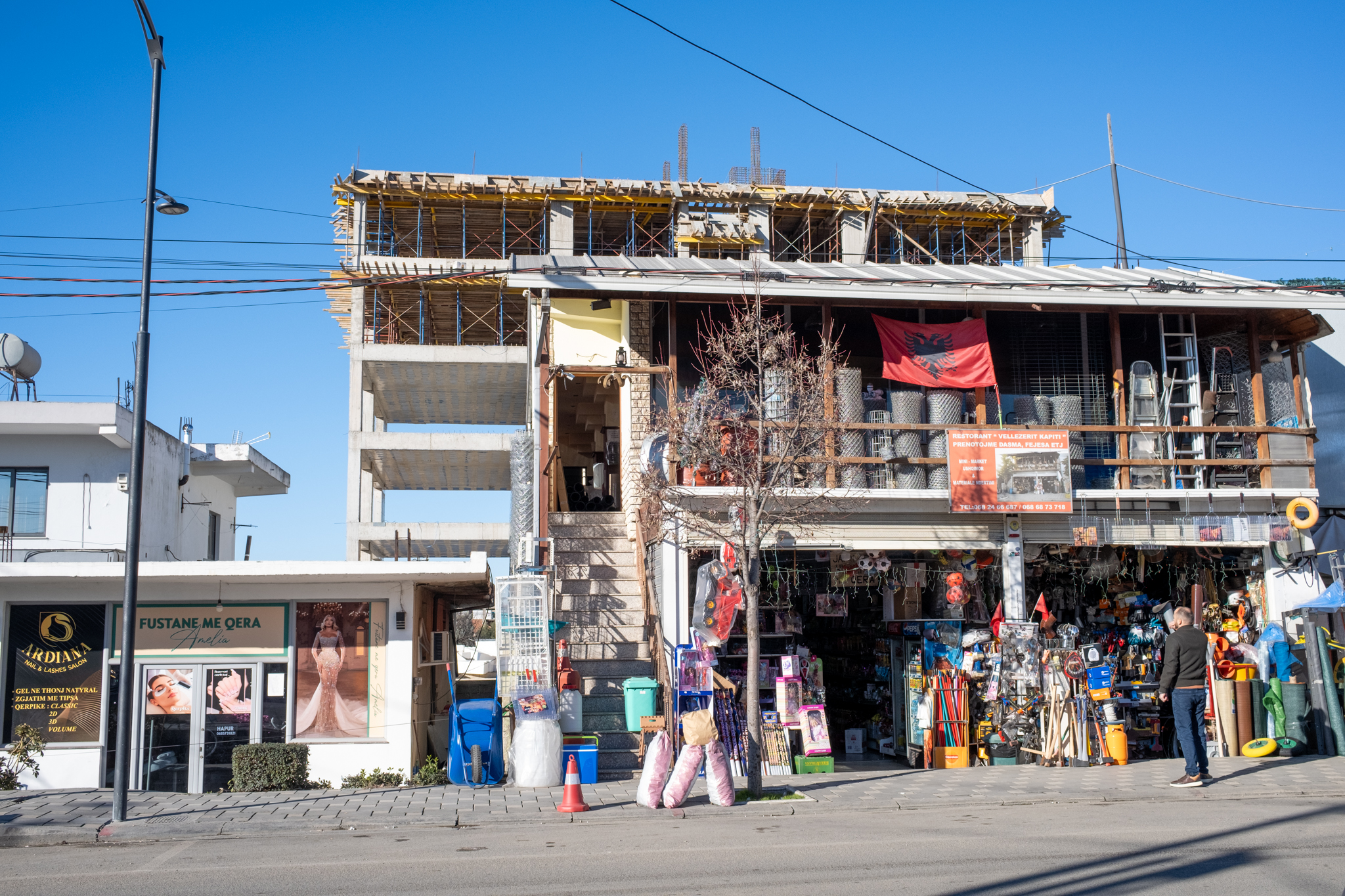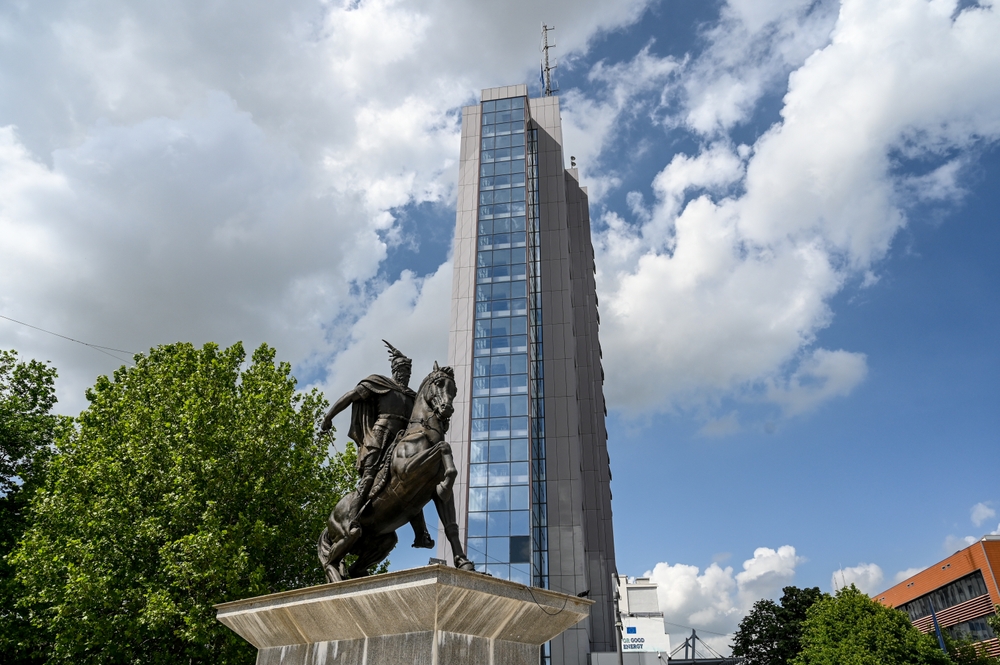North Macedonia, low wages and labour shortage
In recent decades North Macedonia has been affected by a very strong emigration trend and today more and more companies struggle to find staff. Among the solutions proposed, there is that of encouraging the arrival of workers from non-European countries

North-Macedonia-low-wages-and-labour-shortage
Welder - © Zahovaev K/Shutterstock
Employers in North Macedonia are facing an increasing shortage of available workers, since Macedonians have been emigrating in mass abroad looking for better wages. According to representatives of the economic sector, the lack of workers has become a serious problem in North Macedonia since the start of the Covid-19 pandemic.
Experts say that the problem is multidimensional, emphasising the available data: out of a 1.8 million population there are currently 115,000 unemployed or almost 7% people of working age. Many, however, have only primary school certificates or did not finish high school.
Workers from abroad
Some representatives of industries such as construction, textile, manufacturing, catering, and hospitality are already openly talking about the necessity of attracting workers from other countries. This "recipe", which is already applied in developed countries, has yet to prove sustainable for developing countries like North Macedonia, with a 300 Euros minimum wage and a 500 Euros average wage.
Representatives of the government say that it is necessary to think about importing workers from other countries, but also about investing in retraining, training, and qualification for the unemployed and unqualified Macedonian workers.
Vice-prime Minister Fatmir Bitiqi said for the local media that North Macedonia lacks 10,000 workers per year and that importing labour and retraining the unemployed must be the way to solve the problem. “We must make these two moves, so that our companies remain competitive due to the frequent changes in industrial-technological development”, said Bitiqi.
Other experts, though, warned that importing labour from non-European countries can be a short-term solution, but would be difficult.
“Bringing workforce from abroad initially costs 2.000 Euros per worker, due to accommodation, food… To bring a person from Bangladesh with the plane ticket, all necessary permits, and medical examinations, will cost you more than 1,500 Euros”, said Zoran Kochoski – from a private employment agency – during a televised debate. “You have to provide accommodation, transportation, some kind of integration into the social and healthcare system of North Macedonia. But this is still not regulated in our country: I’m afraid to talk about how many things are still not regulated in this field”.
Furthermore, according to Kochoski, the import of labour force could be an ephemeral solution to the problem, because many workers could see North Macedonia only as a transit country to reach the richer European Union countries. He emphasised that in the recent past Albania attracted people from Egypt, but most of them left for the EU which then sanctioned the country.
In order to change things, trade unions and labour rights organisations are calling for higher wages and better working conditions.
Investing on local or foreign labour?
“Regarding the processing activity in the textile industry, for example, workers can be found if they are paid more than the minimum wage, if they are paid above the average they will certainly be found”, said to TV24 Biljana Jovanovska, former director of the State employment agency. Jovanovska points out that most vacant jobs do not require major professional qualifications, and with a small retraining a large percentage of the unemployed would quickly fit into the production process of domestic companies.
Still, proponents of importing labour force argue that new, cheaper workers could come, for example, from Bangladesh, where the minimum wage is 240 Euros, compared to the 300 Euros in North Macedonia. These workers could be attracted by the better infrastructure and higher social protection granted in North Macedonia.
According to university professor Lazar Jovevski, the demographic combination of population aging and mass emigration remains a factor: many Macedonians, dissatisfied with working conditions at home, emigrate and encourage their loved ones to do the same.
“Not only young people, but also people at the end of their working years keep moving abroad”, said Jovevski in an interview for Channel 5 TV.
The "Open Balkans" agreement, which gives workers from Macedonia, Serbia, and Albania the opportunity to work without restrictions in all three countries, is presented by the government as an opportunity to import workers, but at the same time there is a danger that Macedonian citizens could use the agreement to move to Serbia or Albania.
Critics of this idea say that there is a labour shortage also in other countries of the Western Balkans, and that workers from the immediate surroundings would rather go directly to more developed countries, such as Germany which facilitates the reception of new workers, even with lower qualifications.
“The solution to the shortage of workers must be sought in our domestic labour force. Employers will be forced to turn to domestic labour supply, raise wages, and offer better working conditions and benefits. In Serbia and Croatia, some of the companies offer better conditions for attracting workers from the less developed areas of the country, such as accommodation and food”, said Trpe Deanovski, from the Union of Workers from the Administration, Judicial Bodies and Citizens’ Associations (UPOZ), in an interview for Radio Free Europe.
Some data
According to data of the Macedonian State Statistics Office, as of 2022, the active population in Macedonia comprises 808,328 people, including 693,062 employed and 115,266 people unemployed: the current unemployment rate is 14.3%, one of the lowest in the last 10 years.
According to the Office, in 2022 the most workers were required in the manufacturing industry (2953), followed by the wholesale and retail trade for the repair of motor vehicles (1735). There were 996 vacancies in transport and storage, followed by construction with 730 and IT and communications with 580. There were also 377 vacancies in education, 481 in healthcare and social protection, and 803 in administration and auxiliary service.
North Macedonia, low wages and labour shortage
In recent decades North Macedonia has been affected by a very strong emigration trend and today more and more companies struggle to find staff. Among the solutions proposed, there is that of encouraging the arrival of workers from non-European countries

North-Macedonia-low-wages-and-labour-shortage
Welder - © Zahovaev K/Shutterstock
Employers in North Macedonia are facing an increasing shortage of available workers, since Macedonians have been emigrating in mass abroad looking for better wages. According to representatives of the economic sector, the lack of workers has become a serious problem in North Macedonia since the start of the Covid-19 pandemic.
Experts say that the problem is multidimensional, emphasising the available data: out of a 1.8 million population there are currently 115,000 unemployed or almost 7% people of working age. Many, however, have only primary school certificates or did not finish high school.
Workers from abroad
Some representatives of industries such as construction, textile, manufacturing, catering, and hospitality are already openly talking about the necessity of attracting workers from other countries. This "recipe", which is already applied in developed countries, has yet to prove sustainable for developing countries like North Macedonia, with a 300 Euros minimum wage and a 500 Euros average wage.
Representatives of the government say that it is necessary to think about importing workers from other countries, but also about investing in retraining, training, and qualification for the unemployed and unqualified Macedonian workers.
Vice-prime Minister Fatmir Bitiqi said for the local media that North Macedonia lacks 10,000 workers per year and that importing labour and retraining the unemployed must be the way to solve the problem. “We must make these two moves, so that our companies remain competitive due to the frequent changes in industrial-technological development”, said Bitiqi.
Other experts, though, warned that importing labour from non-European countries can be a short-term solution, but would be difficult.
“Bringing workforce from abroad initially costs 2.000 Euros per worker, due to accommodation, food… To bring a person from Bangladesh with the plane ticket, all necessary permits, and medical examinations, will cost you more than 1,500 Euros”, said Zoran Kochoski – from a private employment agency – during a televised debate. “You have to provide accommodation, transportation, some kind of integration into the social and healthcare system of North Macedonia. But this is still not regulated in our country: I’m afraid to talk about how many things are still not regulated in this field”.
Furthermore, according to Kochoski, the import of labour force could be an ephemeral solution to the problem, because many workers could see North Macedonia only as a transit country to reach the richer European Union countries. He emphasised that in the recent past Albania attracted people from Egypt, but most of them left for the EU which then sanctioned the country.
In order to change things, trade unions and labour rights organisations are calling for higher wages and better working conditions.
Investing on local or foreign labour?
“Regarding the processing activity in the textile industry, for example, workers can be found if they are paid more than the minimum wage, if they are paid above the average they will certainly be found”, said to TV24 Biljana Jovanovska, former director of the State employment agency. Jovanovska points out that most vacant jobs do not require major professional qualifications, and with a small retraining a large percentage of the unemployed would quickly fit into the production process of domestic companies.
Still, proponents of importing labour force argue that new, cheaper workers could come, for example, from Bangladesh, where the minimum wage is 240 Euros, compared to the 300 Euros in North Macedonia. These workers could be attracted by the better infrastructure and higher social protection granted in North Macedonia.
According to university professor Lazar Jovevski, the demographic combination of population aging and mass emigration remains a factor: many Macedonians, dissatisfied with working conditions at home, emigrate and encourage their loved ones to do the same.
“Not only young people, but also people at the end of their working years keep moving abroad”, said Jovevski in an interview for Channel 5 TV.
The "Open Balkans" agreement, which gives workers from Macedonia, Serbia, and Albania the opportunity to work without restrictions in all three countries, is presented by the government as an opportunity to import workers, but at the same time there is a danger that Macedonian citizens could use the agreement to move to Serbia or Albania.
Critics of this idea say that there is a labour shortage also in other countries of the Western Balkans, and that workers from the immediate surroundings would rather go directly to more developed countries, such as Germany which facilitates the reception of new workers, even with lower qualifications.
“The solution to the shortage of workers must be sought in our domestic labour force. Employers will be forced to turn to domestic labour supply, raise wages, and offer better working conditions and benefits. In Serbia and Croatia, some of the companies offer better conditions for attracting workers from the less developed areas of the country, such as accommodation and food”, said Trpe Deanovski, from the Union of Workers from the Administration, Judicial Bodies and Citizens’ Associations (UPOZ), in an interview for Radio Free Europe.
Some data
According to data of the Macedonian State Statistics Office, as of 2022, the active population in Macedonia comprises 808,328 people, including 693,062 employed and 115,266 people unemployed: the current unemployment rate is 14.3%, one of the lowest in the last 10 years.
According to the Office, in 2022 the most workers were required in the manufacturing industry (2953), followed by the wholesale and retail trade for the repair of motor vehicles (1735). There were 996 vacancies in transport and storage, followed by construction with 730 and IT and communications with 580. There were also 377 vacancies in education, 481 in healthcare and social protection, and 803 in administration and auxiliary service.









